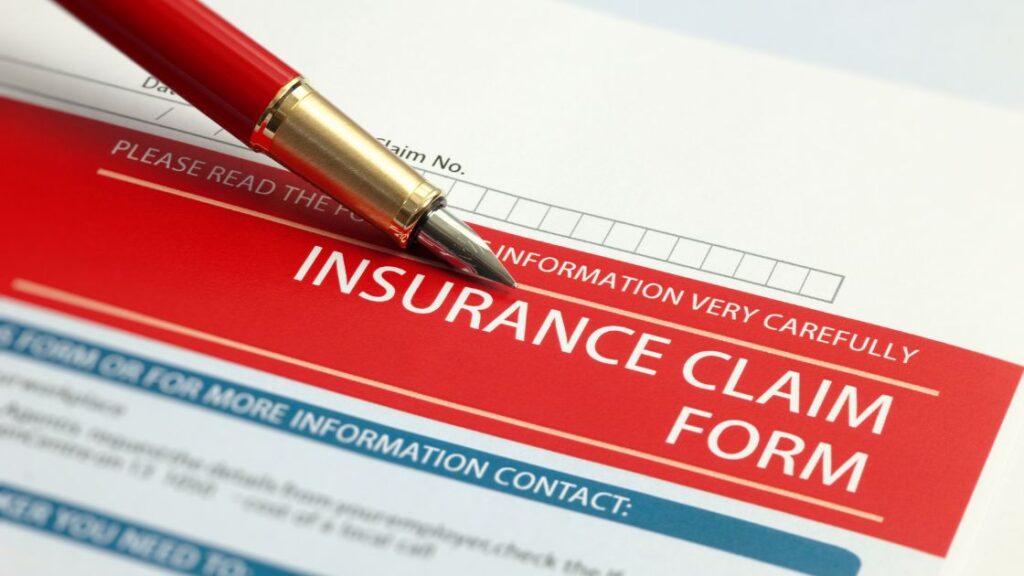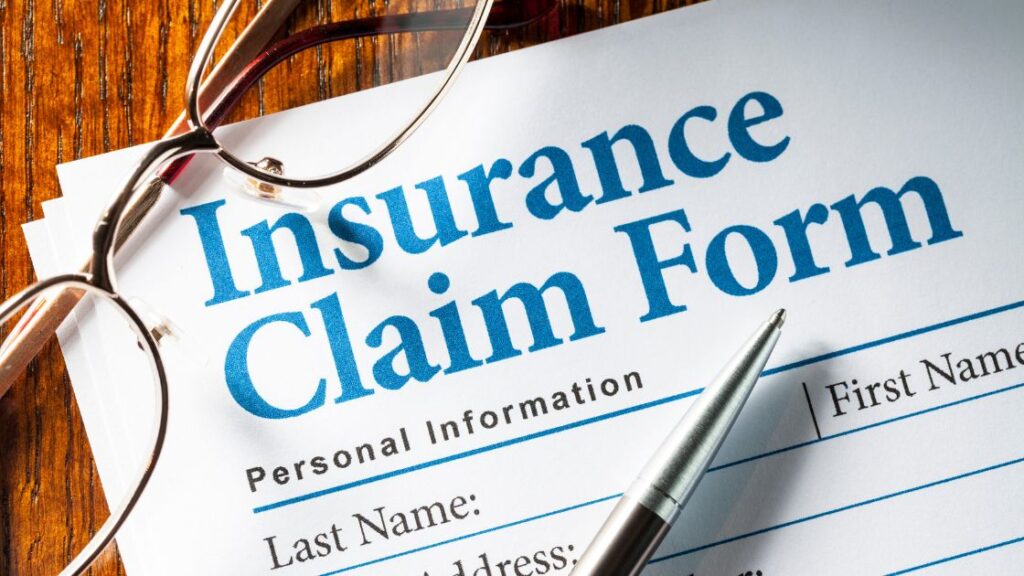If you suspect insurance fraud has occurred, you should immediately report it to DFS or call the Insurance Fraud Hotline: 888-FRAUDNY (888-372-8369). The matter will be treated confidentially.
Fighting insurance fraud remains a strategic priority for the industry. In 2016, insurers discovered 125,000 dishonest insurance claims worth £1.3bn. It is estimated that a similar amount of false insurance goes undetected every year. That’s why insurers invest at least £200m every year to detect fraud.
- False insurance affects every type of insurance. At one end of the spectrum, from can be perpetrated by opportunists, where people have opportunities in their everyday life experiences to fabricate or exaggerate a claim or to intentionally or recklessly provide false information when applying for insurance. On the other hand, there are highly organized criminal gangs, such as scammers involved in “crash for cash” engine scams.
False insurance is a serious crime that can have serious repercussions for fraudsters, who find their future job prospects compromised, find it more difficult to obtain insurance and other vital financial services, face a criminal conviction and even face jail time.
Insurance fraud also has an impact on society at large as valuable public resources, such as those of the NHS and the courts, are devoted to dealing with fraud cases. And honest policyholders pay higher insurance premiums because the cost of fraudulent claims is passed on to customers.
Insurers continue to strive to provide excellent service and pay for all genuine claims as quickly as possible. However, fraud remains worthy of attention and an intimidating remark to the industry.
To build the trust of clients, The industry has provided vital resources in preventing and detecting insurance fraud.
False insurance

The insurance industry is made up of more than 7,000 companies that collect over $1 trillion in premiums each year. The sheer size of the industry adds significantly to the cost of insurance fraud by providing more opportunities and greater incentives to engage in illegal activities.
Insurance fraud occurs when people deceive an insurance company to collect money they are not entitled to. Insurance companies can also commit fraud by unlawfully refusing to pay a policyholder or healthcare provider when they are due. For more information on this, see If Your Insurance Company Doesn’t Cover You: Fraud and Breach of Faith.
Insurance fraud affects all of society, not just insurance companies, and is therefore severely punished. According to the Coalition Against Insurance Fraud, fraud schemes in the United States steal at least $80 billion annually. Ultimately, the cost is borne by policyholders and consumers, as insurance companies charge higher premiums to cover their fraud claims. Premium rates for individuals and businesses are increasing, and businesses often pass the increased costs on to their consumers.
This article discusses the elements of insurance fraud, including the most common types, and the range of penalties imposed for fraudulent convictions for insurance fraud. For more information on other types of fraud and their consequences, see Fraud Laws.
The Elements of False Insurance
For the defendant to be found guilty of fraudulent activity, prosecutors must demonstrate that each of the following “elements” was met. Unless the judge or jury finds that each of these elements has been proven beyond a reasonable doubt, they must acquit the accused.
Knowingly making a false or misleading statement
Like other forms of fraud, false insurance requires the suspect to knowingly make false or misleading statements, or in other words, tell a lie. Simply not telling the truth is not enough – the accused must do so knowingly, which means they must have the intent to make the statement and be aware that the statement is false. For example, if a person filing an auto insurance claim in error but in good faith tells their insurance company that their vehicle’s mileage is 100,000 miles when it is 112,000 miles, they have not committed fraud. However, if a person later discovers that a statement they made to an insurer in the course of filing a claim is incorrect, even though they were unaware at the time that the statement was incorrect, they must notify their insurer of the error to info with.
The declaration is made in connection with a claim or payment made or to be made under the terms of an insurance policy
The false statement must have been made in support of, disapproval of, or in connection with any claim or payment made or to be made under an insurance policy. This may include making a false or exaggerated claim to an insurance company, making a false statement to a doctor in connection with an insurance claim, or misrepresenting medical providers to insurers about the services they provide.
What is the Penalty for False Insurance?

False Insurance is a form of theft and is illegal in every state. Occasionally, such cases are prosecuted in federal courts (where penalties tend to be much longer), e.g. B. when the losses are large and transactions have taken place across state borders, such as e.g. Typically, however, insurance fraud is prosecuted in state courts, either as a misdemeanor (with a penalty of one year or less in prison) or as a felony (with an authorized prison sentence).
An insurance company can also commit insurance fraud, e.g. B. when it systematically rejects legitimate claims or when a counterfeit insurer sells policies with no intention of paying claims. But most cases of insurance fraud involve a consumer. A person commits insurance fraud by willfully using deception to obtain an improper profit from an insurance company, e.g. B. when an insured person lies in an insurance application or fabricates a claim.
Padding or exaggerating a valid claim is considered “soft insurance fraud”. For example, a driver may have a valid claim for property damage resulting from a collision with a motor vehicle. But if the driver also claims non-existent injuries and medical expenses, then that’s “soft insurance fraud.” Another example would be a legitimate property claim following a home burglary where the homeowner overestimates the value or number of items stolen. Soft insurance fraud is widespread and not considered to be as serious as hard insurance fraud. Penalties for soft insurance fraud can include reprieve, community service, and probation. Whether it is a criminal offense or an administrative offense depends on the extent of the damage.
On the other hand, “hard insurance fraud” is when the entire claim is fraudulent and more serious. For example, a person could burn down their own home or business to collect insurance money — that would be “hard insurance fraud.” Other examples include staged car accidents, false reports of stolen property, or fake workplace injuries (for workers’ compensation). “Aggravated Insurance Fraud” is likely a felony with an approved prison term.
Some may find it harmless to exaggerate an insurance claim, or even call it a “victimless” crime. However, the costs are passed on to individual policyholders in the form of higher premiums. According to the FBI, insurance fraud in the United States totals $40 billion a year and costs the average family an additional $400 to $700 a year in increased premiums — not even counting health insurance fraud. The insurance industry estimates that 10% or more of property and casualty insurance claims could be fraudulent. States have set up fraud bureaus to investigate insurance fraud, each insurance company has its investigators, and insurance companies have formed special investigative units.
As with any crime, penalties vary by state law. Courts will also likely consider the amount of damage, victim impact statements (if any), and the defendant’s criminal record. But any insurance fraud is serious and should not be taken lightly, so penalties can include compensation, fines, community service, probation, and jail statement is material
For insurance fraud to exist, the falsity must be corporeal or important to the insurance payment or claim. If a person tells a lie in the course of an insurance claim investigation, but if it has no actual or potential effect on the outcome of the investigation, then he or she has not committed fraud. For example, a person making an insurance claim for a robbery at their business may claim to the insurer that their business has received awards for excellent customer service, when in fact it hasn’t. Although this person lied to the insurer, they did not commit fraud as the statement about receiving awards is not essential to their claim.
COMMON TYPES OF FALSE INSURANCE

• Health care
• Automobile claims
• Life
• Property
• Punish
• Insurance fraud can generally be divided into two categories known in the industry as “soft fraud” and “hard fraud”.
• Soft fraud occurs when a person exaggerates an existing claim, such as overestimating the damage caused by a car accident. Soft cheating is typical red as a misdemeanor punishable by fines, up to a year in prison, community service, and probation.
• Hard fraud, on the other hand, occurs when a person either causes or fabricates a loss to intentionally obtain insurance payments. Hard cheating is considered almost a crime, teachable by severe penalties, including the possibility of several years in state prison.
• Penalties for false insurance vary widely depending on the state in which the prosecution took place, the amount of money fraudulently sought or obtained, and the criminal history of the accused. For more information, see Common Offenses and Their Penalties by State.
Getting Help
If you are charged with false insurance, especially if you are facing major criminal charges, consider a criminal defense counsel as early as possible in your case. An experienced counselor at law can help you understand the laws in your area, counsel you on defenses you may raise, explain your options, and notify you of your rights.
THE CONSEQUENCES
If a false claim is made, the insurer can sue for all costs and damages. A false allegation can reseal or hefty fines and a criminal record that can affect the future of those found guilty. Insurance companies may refuse to sell insurance to anyone involved in making false claims.








